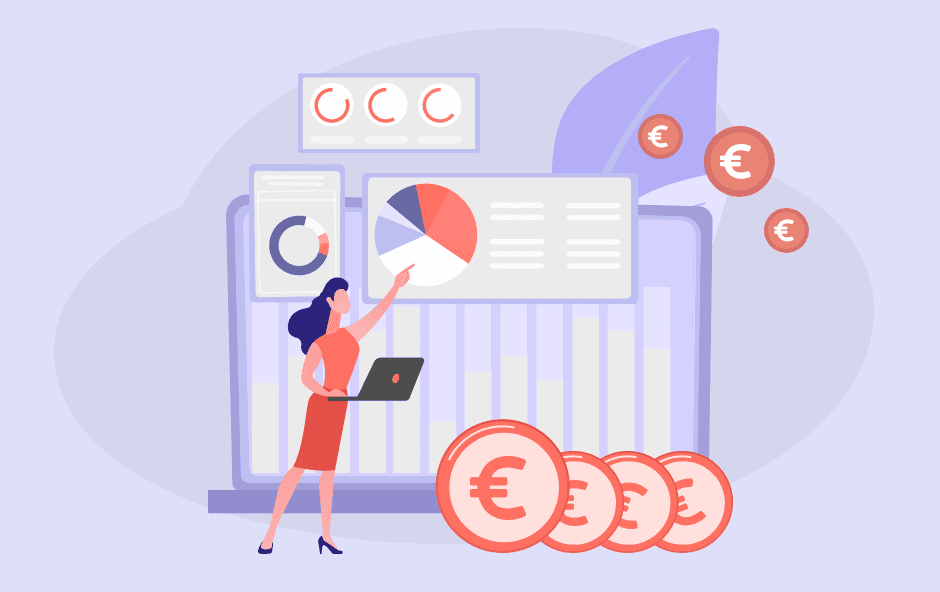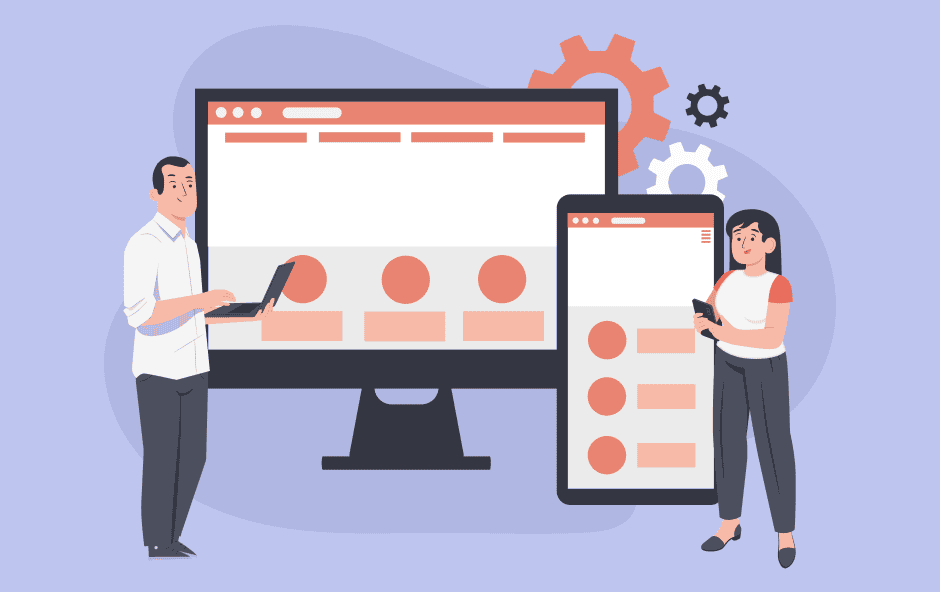A good app idea is a strong start for any successful mobile application. Whether you've come up with a unique concept or want to solve an existing problem, it all begins with an inspiring idea that can truly make a difference. In the fast-paced world of mobile apps, it’s important to know how to develop your app idea into a compelling solution that genuinely has impact. Various app ideas have the potential to become popular applications in the Google Play Store, provided they are well-executed and meet the needs of users. In this article, you'll discover how to turn your app idea into a successful mobile application. We explore inspiring examples, offer practical tips for developing your idea, and show you how to bring your concept to life step by step.
What makes an app idea strong and promising?
A good app idea is always based on a clear insight: it solves a real problem within a specific target group or market. That could be broad—such as an app that helps organise your day—or very niche, like a tool for a small group with unique needs. What matters most is that the idea adds something that isn’t already (sufficiently) available or improves existing solutions in a smart way.
Before moving forward, it’s important to research whether similar apps and competitors already exist so that you can ensure your app stands out in the market.
Strong app ideas stand out because they help people save time or reduce frustration, are easy and intuitive to use, are aimed at a clear audience with recognisable needs, and are realistically achievable within your budget and technical capabilities. A good example is an app that automates business processes, such as a booking app that streamlines internal communication and client appointments for a service-based company.
Always check if there’s an app similar to your idea, to avoid entering an oversaturated market. It’s essential to develop your idea into a concrete plan so you know exactly what you aim to achieve. Define the functionalities your app needs to effectively solve your audience’s problem—the right features are crucial to an app’s success. Also consider your target audience’s interests and how you’ll appeal to them. There are endless applications for app ideas—from education to health and finance. One idea might be a virtual health app as an alternative to traditional care.
What not to do with your app idea
A common mistake is starting with an app that is mainly informational and not interactive. These apps tend to lack depth and added value for users, which makes it hard for them to succeed. Your app idea should primarily be useful to the intended audience.
It’s also important to consciously choose a target audience that aligns with your goals. A broad audience may attract many users but usually generates less revenue per user. A niche market may draw fewer users but often yields more value per user. Both strategies can be successful if well thought out. Apps that simply copy existing services without offering something new will struggle in a crowded market—always look for a way to add unique value.
Don’t rely solely on your own ideas. By testing your app idea early with real users, you’ll learn whether it genuinely matches their needs and behaviours. This helps avoid surprises later on and gives you the chance to make adjustments before investing too much time and budget. Honest, real-world feedback is often more valuable than internal assumptions.
How to validate your app idea
Many promising app ideas fail because they haven’t been properly tested for feasibility and market potential. That’s why it’s wise to answer a few key questions before taking big steps:
-
Is there demand for my app? Research the market and similar apps. What can you offer that’s unique? Use digital tools such as market research platforms and creative methods to test your idea—for example, by offering a prototype to test users for feedback.
-
Who is my target audience? Describe who your users are, what motivates them, and what problems they face. Think about specific market segments, like students, friends, or charity supporters. It’s important to define your app’s subject clearly so you know where to focus your content and features.
-
What is the core value of my app? Why would someone use your app? What benefits does it offer? For example, an app might use the camera to scan documents or offer scanning as a core feature for rapid data processing. In practice, apps are often used to digitise contact details quickly.
-
How will you make money from your app? There are various methods—subscriptions, one-off purchases, adverts, or in-app purchases. What works best depends on your concept and audience. DTT guides you step by step in choosing and shaping the revenue model that fits your app and ambitions.
-
You can use email or in-app messaging to communicate with users, collect feedback, and improve your concept.
A structured approach helps you to further professionalise your app idea. That’s why we recommend creating a business plan. This helps you clearly define your concept, identify risks, and convince potential investors.
Developing your app idea
Developing your app idea is a crucial step towards a successful app. Start by researching the market: do similar apps already exist, and how can you stand out from competitors? Look not just at what’s out there, but at how your app can solve a problem or meet a specific need. Consider a dating app aimed at a unique demographic, social networks that enable new forms of interaction, or a mobile app that innovates the medical sector by improving communication between patients and doctors.
Next, define your app’s purpose and intended audience. A strong app idea aligns with users’ needs and offers features that make life easier or more enjoyable. Create a list of key functionalities that can make your app a success. Tackling this step thoroughly increases your chances of turning your app idea into one of the top ideas in the app store. Always critically evaluate your concept and be willing to adapt it based on feedback and research.
Developing your app
Once your app idea is clearly defined, it’s time to move on to development. Assemble a team of experienced app developers who specialise in building mobile applications. Choose a developer who not only has technical expertise but also understands what makes your app unique and how to tailor it to your audience.
Before full development begins, it’s wise to create a working prototype. This allows you to test your idea, gather feedback and identify potential issues early. At DTT, we go beyond features like GPS or camera use—we start from strategy and goals, translating them into a user experience that makes sense, adds value, and stands out. The technology follows the needs.
Developing an app requires a structured approach, with careful planning at each stage to turn your idea into reality. Stay critical throughout the process and optimise where necessary to ensure your app becomes a truly successful mobile application that makes a difference.
Want to learn more about how to realise a successful app idea step by step? Read our article how to create an app, where we explain the full process from concept to launch. Remember—a good idea is just the beginning; it needs to be developed further to truly succeed.
How much does it cost to have an app developed?
The cost of developing an app can vary greatly. It depends on factors like complexity, platform (iOS, Android or both), required features and design. The final price is influenced by the number of features you want to include. A simple app with basic functionality can be relatively affordable, whereas a more advanced app with custom integrations will require a larger investment.
By gaining early insight into the cost of an app, you can set a realistic budget. Different applications—such as educational, shopping or wellness apps, and web apps for online services—each come with their own price tags. E-commerce apps, for instance, let users find, compare and purchase products.
Apps developed with user convenience in mind—like scan-to-shop tools or intuitive banking apps—often require additional investment. There are also apps designed for niche markets, such as one for managing a local sports club. Planning well helps you avoid surprises and make smart decisions about what to include in your app’s first version.
How to finance your app idea
It’s not always possible to fully self-fund app development. Fortunately, there are many financing options to help you realise your idea. These include personal investment, crowdfunding, grants or attracting external investors who believe in your concept.
Want to learn more about securing funding? Read our detailed article on investors for your app idea. You’ll find practical tips on making your concept appealing to funders. Choosing the right business model and using digital tools can demonstrate your app’s potential. There are also creative approaches, such as partnerships or innovative campaigns.
Making money from your app idea
An app can be a great solution for users and a strong business opportunity. There are many ways to earn revenue—subscriptions, in-app purchases, advertising, or premium features users pay for. Choosing the right revenue model is key to your app’s success.
Which strategy works best depends on your audience and app type. Developing your idea, specifying necessary features, and building the app are all essential steps to generating income. Some apps let users share experiences or information, increasing their appeal and success.
There are countless use cases, from educational apps to shopping and personal finance apps, each with its own revenue model and user benefit. For instance, an app could be built specifically for the niche market of local food producers. It’s also important to manage your income well and explore creative ways to increase revenue—like partnerships or unique promotions.
Want to know which revenue models are successful and how to apply them? Explore our detailed tips on making money with apps. Remember, optimising your app is essential for getting the most out of your chosen model.
Ready to realise your app idea?
Looking to take your app idea to the next level? Having an app created is an exciting process. You want your vision translated perfectly into a working product that truly makes an impact and ends up on users’ phones. An experienced app developer can help shape your idea, define necessary features and guide you through the entire development process.
At DTT, we’re here to support you every step of the way—from refining your concept and making a realistic plan to technical development and a successful launch. We ensure your app is user-friendly, reliable and future-proof. Some trends in app development have remained relevant for over a decade and continue to evolve today.









